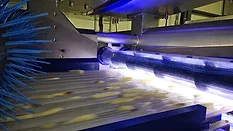
Intervention Controls
Intervention controls involve the addition of control measures into a process to reduce and, ultimately, prevent or eliminate food safety risks.
Articles
More ArticlesNever miss the latest news and trends driving the food safety industry
Newsletters | Website | eMagazine
JOIN TODAY!Copyright ©2026. All Rights Reserved BNP Media.
Design, CMS, Hosting & Web Development :: ePublishing


